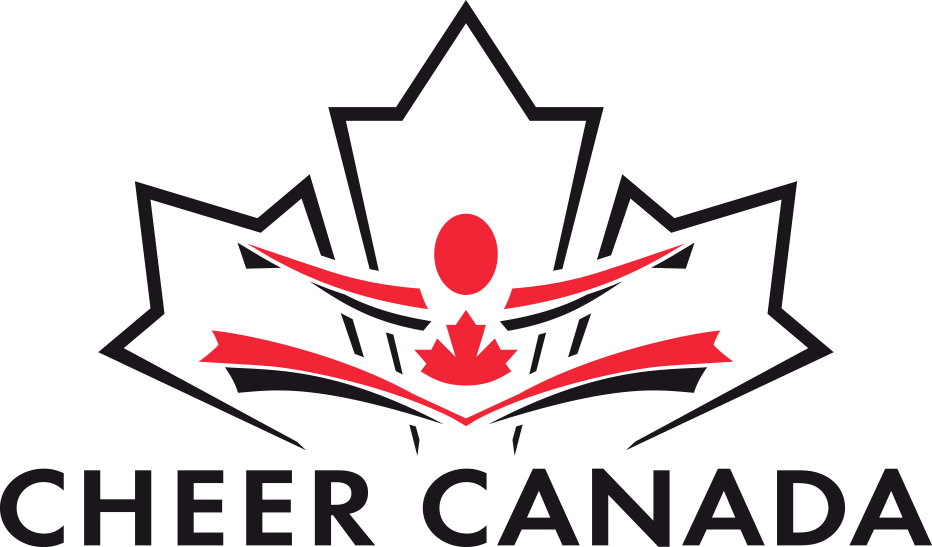With cheer practices being cancelled across the country, keeping fit and motivated to train can be a challenge. We talked with last seasons’ Team Canada strength coach Adrian Honish about how to keep up with training in these difficult times.
“Anything we can keep in our lives right now, that we had before and that we enjoy doing, needs to be a priority. Exercise is one of those things,” Honish said. “Whether gyms are open or closed or you feel safe going to them or you don’t, you can still exercise at home with bodyweight workouts, or with home gym equipment. You can go outside for a walk, a jog, soon you can ski or snowshoe.
“There are so many ways to get exercise and if you’re creative you might even find yourself trying new activities you never did before. I’m personally excited to take up some cross country skiing and snowshoeing this winter. I will always have my access to a gym but the thought of getting out of the house, out in the fresh air, and just trying something new is exciting to me.”
While many sports are training and practicing over Zoom, cheerleaders still have the advantage of being hardworking motivated athletes, ready to put in the work.
“I’ve worked with Cheer Teams and individual athletes as far back as 2007 and can confidently say that they are some of the hardest working, most motivated, driven athletes I’ve ever encountered,” Honish said. “They actually love to train! They love to work hard! They love to do what it takes to become better! They listen, they’re coachable, and they want to learn. I don’t know what it is about the cheer culture but something is definitely being done right. As a strength coach, those are the athletes you appreciate the opportunity to work with.”
But can working out at home or training remotely really work? Honish said that last season most of his training with Team Canada and the Academy athletes was done remotely, and they managed to excel.
“This past season I worked almost entirely remotely with close to 200 Team Canada and Academy athletes. Each athlete was provided a training plan specific to their age, their level of experience in training, and their role in cheer (base vs flyer vs tumbling). As the season went on, the training progressed. By the end of the season, each athlete was for the most part on their own specific customized program. It was all app based, the athletes could record reps/weights, track progress, see results, message me and check in at any time, and best of all, I could monitor what they were doing on my end to keep them on track, report to coaches, etc.”
So, keep up the hard work, because even if it can be difficult without your teammates around you, there are still a lot of ways to get better working out at home, Honish explained.
“How we workout might change, it might mean doing home workouts, plyometrics, jump training or for a lot of cheerleaders it might mean finally putting time into flexibility or foam rolling, rehab, and prehab. But the bottom line is take lemons and make lemonade.
“A lot of clubs are doing such an incredible job of virtual coaching and they deserve so much credit for their resiliency, dedication and resourcefulness to find a way to help athletes. It’s so important for them to be able to still see their teammates and still have that togetherness even though they can’t get together on the mat.”
We know that staying home and isolating from friends and teammates can be hard on an athlete’s emotional well-being too. Honish reminds us that exercise can be a great mood and energy booster.
“Exercise releases endorphins and gives you that ‘euphoric’ feeling, the runner’s high, or pump from a good workout. Unfortunately that feeling is temporary and it goes away until the next workout. I believe exercise does a lot more than just that. It gives you a goal, a routine, something to look forward to each day, something to accomplish and be proud of and when you add all those things up, over time, you start to feel a lot better about what you’re doing each day. You start to eat better. You start to have more energy. You might feel more motivated and almost definitely you’ll feel more confident in yourself both inside and out. Exercise is a truly amazing thing and it can help a lot of people get through a lot of things.”
And the same goes for cheer parents too. Jump in and train with your athlete, Honish recommends.
“Tons of parents are joining in with their children to do the workouts. Everyone is getting the benefits together plus it becomes quality family time simultaneously. If the parent joins in it’s much more likely the athlete will stay consistent and motivated. I’ve really enjoyed seeing this happen.”
Keep moving and working hard, and you’ll be stronger and more prepared to take to the floor with your teammates when it’s safe to do so!
To learn more about cheer-specific training, or working with a strength coach, contact Adrian Honish at Effectus Athlete Development or email ahonish@effectusathlete.com.
